Big Bang Therory but Only One Person Finds Funny
The Big Bang Theory Without The Laugh Track Is Weirder Than You Think
As the landscape of network television has shifted over the past couple of decades, there have been fewer and fewer week-to-week shows that could legitimately be described as audience phenomena. But one of them, unarguably, was "The Big Bang Theory." The CBS comedy about the lives and times of a group of nerd friends working at Caltech consistently pulled in ratings to make any other sitcom cower, with highs of as many as 20 million viewers tuning in on certain weeks.
This widespread, monolithic popularity inevitably put a target on the show's back — and, no matter how beloved it was among its large viewership, "The Big Bang Theory" also spent many years as one of the most trash-talked shows on air, in certain corners of the internet.
Many were the critics and casual viewers who criticized it for its outside-looking-in stigmatization of geek culture, overreliance on stereotypes, and lack of risk-taking. But the most common accusation lobbed against "The Big Bang Theory" by its detractors was that it just wasn't funny. This charge often came accompanied with the claim that the show's gags and one-liners only seemed funny because of the constantly booming sitcom laugh track. Whether or not you agree on that count, it really is true, as it turns out, that the show would be a very different beast without its laughter sounds.
Removing the laugh track makes the show feel very awkward
There are several compilations on YouTube of "The Big Bang Theory" scenes with the laugh track removed. A particularly popular example is an edit of the 21st episode of Season 11, "The Comet Polarization," posted by YouTube user Ryan Arthur in 2018. The episode finds Sheldon Cooper (Jim Parsons) throwing a fit over the fact that his go-to comic book store has become highly popular overnight, complete with a new assistant manager (Lauren Lapkus).
Given that "The Big Bang Theory" is so based on broad, playing-for-the-crowd humor in both writing and performance style, and that a lot of the characters' snarky one-liners are timed in tandem with the laugh track for maximum comedic impact, this sans-laugh version of the show feels completely wrong. There are patches of unfunny silence that feel outright surreal, like something out of a David Lynch parody of American television tropes. Instead of coming across as smart or amusing, the dry one-liners, left to sit on their own, only seem mean and awkward. In fact, the whole experiment drives home just how much of the humor on "The Big Bang Theory" stems from characters constantly throwing backhanded insults and shade at each other — especially at Sheldon — and then waiting ... and waiting ... and waiting.
Pretty much any multi-camera sitcom would look weird without the laugh track
Of course, the results of this sound editing experiment don't necessarily "prove" that "The Big Bang Theory" is a bad show. Even though the video's comments are filled with comments like "Proof that laugh tracks are mind control" and "Big Bang Theory But with a real audience this time," the fact remains that the laughs are an intrinsic part of how multi-camera sitcoms are timed, staged, and performed. They're not just a neutral element that can be taken away — and that goes for the most acclaimed shows, too.
As a case in point, YouTube user Copperport Landfill edited the classic "Seinfeld" episode "The Soup Nazi" to see what it would look like without a laugh track. And, surprise surprise, it also feels completely off. The fact that the actors wait around to accommodate the audience reaction, thus creating a lull in the timing if said reaction is removed, doesn't inherently mean they're relying on the audience reaction to create the humor.
"Seinfeld" does fare better than "The Big Bang Theory," by virtue of relying less on one-liners and more on banter, as well as being a show that takes awkwardness and discomfort as its bread-and-butter. George's (Jason Alexander) silence when facing Yev Kassem (Larry Thomas) actually gets even funnier the more drawn-out it is. But a fairer experiment would be to edit such shows so that the few seconds of silence are edited out along with the laugh track.
Multi-camera sitcoms are going out of style
The truth is, the standard, soundstage-bound, laugh-track-filled multi-camera sitcom format was already considered worn-out in the 1990s. Jerry Seinfeld and Larry David actually wanted "Seinfeld" to be shot in a drier, more modern style, but had to concede the laugh track to NBC (via Vox). The significant decrease in number of buzzy multi-cam sitcoms over the past couple of decades is self-evident, and arguably best exemplified by the fact that even a successful "Big Bang Theory" spin-off, "Young Sheldon," saw fit to do away with the laughs and embrace the single-camera format.
But that doesn't mean the multi-camera sitcom is dead. There's something to be said for the way it approximates the experience of watching a live comedy show with a roaring crowd. If single-camera sitcoms take after the rhythms of comedy movies, only in miniature form, multi-camera sitcoms harken back to the traditions of comic theater — and, much like stage productions, they can't really be viewed as approximations of the rhythms of real life, where people aren't supposed to pause to let jokes sit.
In fact, the history of the TV sitcom format is a lot more complicated than the standard "single-camera = new, multi-camera = old" dichotomy might suggest.
Despite its old-fashionedness, the multi-camera format has value
When "The Big Bang Theory" finished its run in 2019, it was considered the end of an era for the multi-camera sitcom format. The next highest-rated comedy it passed its popularity baton to was a single-camera show with a very contemporary stylistic slant — ABC's "Modern Family" (via Variety). However, even as the format seemed to enter its twilight years, many critics argued in favor of its perpetuation.
In a lengthy, history-rich article published at the time that "The Big Bang Theory" was reaching its end, The Los Angeles Times' Robert Lloyd demonstrated that single-camera sitcoms are not actually "newer" or "more modern" than multi-camera ones, and in fact came before them chronologically, eventually being supplanted by the popularity of stage-style comedy in the 1970s. The author went on to argue that, "Where a single-camera comedy might home in on small details ... multi-camera comedy just looks at people, at close quarters, talking, talking, talking. It tells stories of humans getting along or not getting along in a shared space ... with the fact that they're sharing a space perhaps more important than whether or not they're getting along in it."
As a result, per Lloyd, "This space is shared with the viewer too. To laugh at home with a studio audience is to become a member of that audience ... you become a witness, a participant, family." Incidentally, that's how a lot of "Big Bang Theory" fans might describe their relationship to the show, corny as the jokes may be.
Source: https://www.looper.com/789368/the-big-bang-theory-without-the-laugh-track-is-weirder-than-you-think/
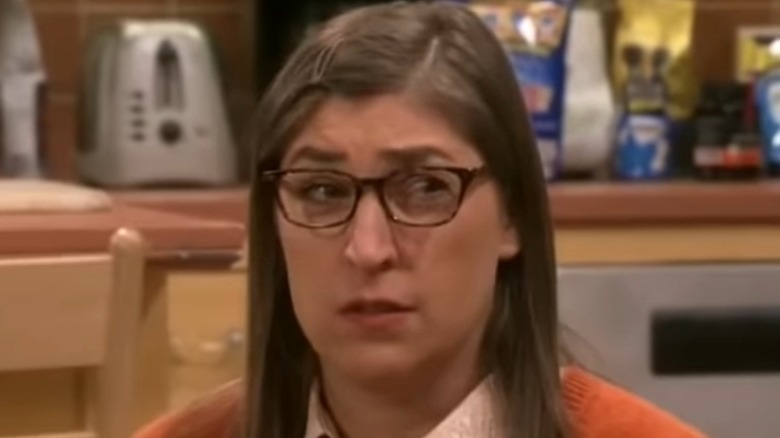
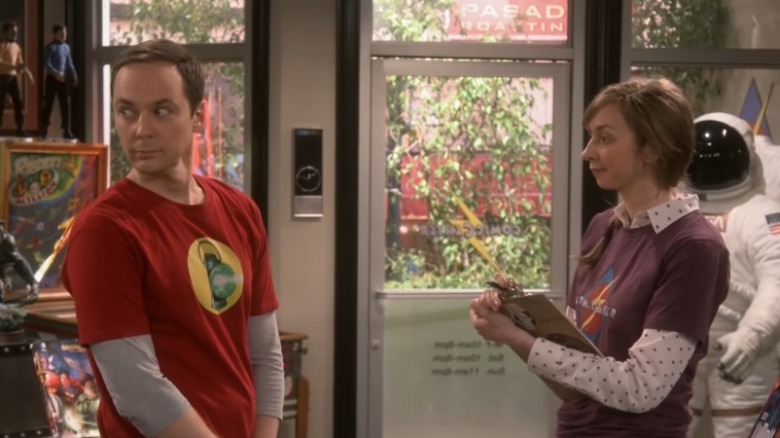
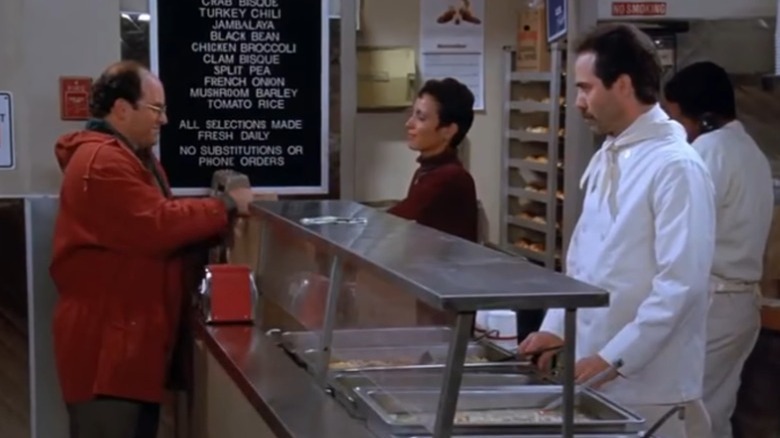
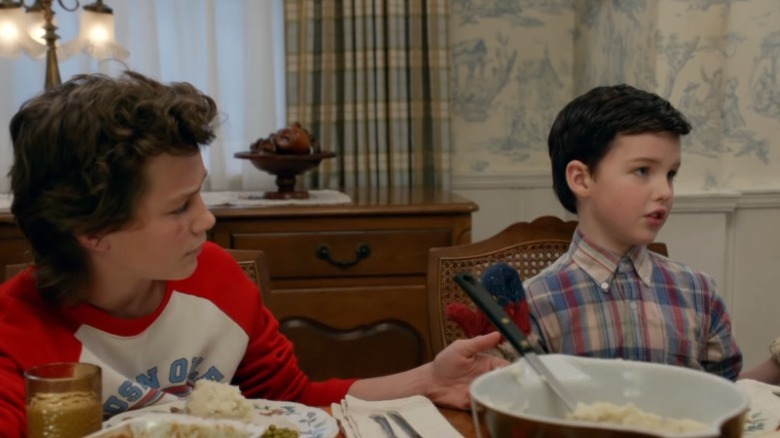
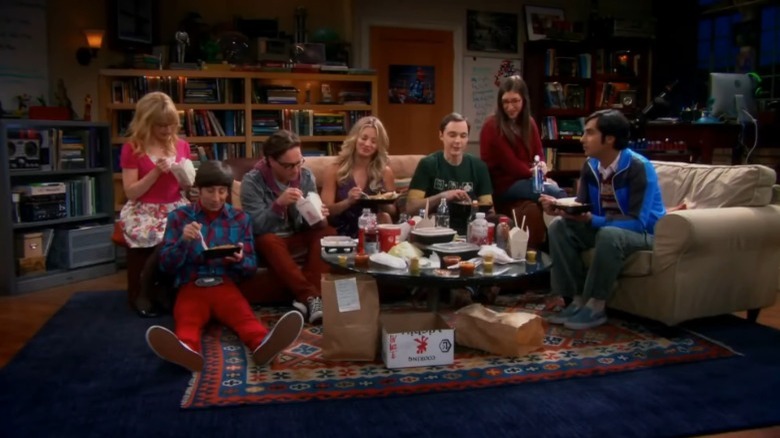
0 Response to "Big Bang Therory but Only One Person Finds Funny"
Post a Comment